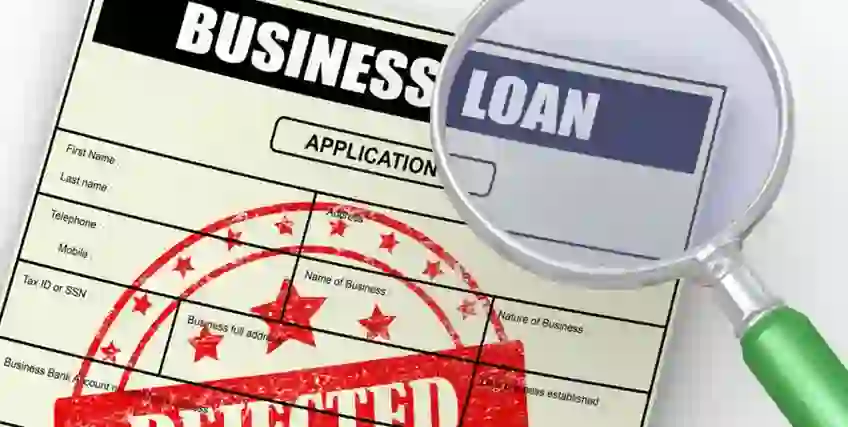Where to Find Loans for Liquor Stores When Cash Flow Dries Up
September 11, 2025 | Last Updated on: September 11, 2025

Every small business faces challenges from time to time. In the retail business, you have a few unique opportunities to find financing apart from traditional small business loans. So, if you run a liquor store or package store and you’re short on cash flow, there are more short-term solutions than working capital loans or term loans.
In this article:
- Learn how liquor stores can find financing when money is tight.
- Explore retail inventory financing and other unique financing options for managing cash flow.
- Understand how liquor store owners can qualify for financing with competitive repayment terms.
The State of the Liquor Store Industry
Beer, wine, and liquor stores have been invigorated during the past few years because of the popularity of high-end beverages. According to IBISWorld's Beer, Wine, and Liquor Industry Report, consumer taste preferences have shifted away from mass-produced global beer brands toward local craft styles that boast high-quality ingredients and unique flavors. The industry generates $79.9 billion in annual revenue and employs more than 214,000 people nationwide.
Over the past five years, revenue has expanded at a CAGR of 2.2% and is expected to continue rising. That’s great news for liquor stores, despite operating in a competitive, relatively recession-proof industry. Managing cash flow is easier when demand is greater.
Challenges for Liquor Stores
Despite healthy industry growth, independent liquor store owners often struggle to maintain a healthy cash flow. Reasons include high overhead and staffing costs, expensive inventory, and financial mismanagement.
A significant issue facing liquor store owners is a need for more access to working capital. Because a typical liquor store has a high percentage of cash sales, coveted merchandise, and long hours, it is particularly susceptible to crime. Security costs must be factored in. Financing for liquor stores is not easily obtained through conventional loan options.
Startups and existing liquor store business owners alike may struggle to find capital, especially if they have bad credit or limited credit history. Ultimately, many small business owners must turn to alternative business financing to pay for business needs.
Online lenders and alternative lenders offer traditional products like term loans and business lines of credit, but they also offer non-conventional loan options like retail inventory financing, invoice financing, and merchant cash advances (MCAs).
Financing Options for Liquor Stores
While banks and credit unions may view package stores as too risky to finance, alternative lenders are a lot more flexible. Alternative lenders filled the void in small business lending during the post-Great Recession “credit crunch” when banks hunkered down and approved a very small percentage of the small business loan applications they received.
Since then, through the COVID-19 pandemic and strong economies alike, alternative lenders have carved out a good market share for small business funding.
Retail inventory financing
One of the best ways for package stores to get started is to leverage inventory financing. This short-term loan or line of credit allows businesses to purchase inventory (in this case, alcohol), and then use that inventory as collateral to secure the loan. The loan amount you can get depends on the value of the inventory you’re purchasing.
This can be a particularly useful funding solution for new liquor store owners because you’ll need fewer financial statements and bank statements, although a good personal credit score will also make you a more attractive applicant. Of course, with this type of business, you will have to show that you have a liquor license.
Invoice factoring or financing
As liquor stores typically sell direct to consumers with cash or credit card payments, this isn’t always the best solution. Nonetheless, it’s a good one to know if your package store sells in bulk or facilitates distribution to other retail outlets.
Both invoice factoring or financing are ways to turn your unpaid, outstanding invoices into upfront cash. In either arrangement, you sell your invoices to a third-party for a lump sum payment in your bank account, like one you’d get from a term loan. In both cases, the company pays you less than the full value of the outstanding invoices.
In invoice factoring, the third-party assumes ownership of the invoices, meaning they’ll take the responsibility of collecting payment. In invoice financing, you’re still responsible for collecting payment, which you’ll use to pay back the loan later.
Merchant cash advance
A popular solution for business owners with bad credit or who need fast funding, merchant cash advances (MCAs) are technically not loans, as they’re facilitated between two companies. In an MCA, a provider gives a liquor store (or other business) an upfront payment in exchange for a percentage of future credit card sales.
Like many other loans, MCA money can be used for any business need, from renovations and acquiring new real estate to equipment financing and managing cash flow. The application process is fast, and eligibility requirements are much lower than traditional bank loans.
Rather than an interest rate, MCAs use what’s known as a factor rate to determine the repayment amount. To get this number, you multiply the loan amount by the factor, usually between 1.1 and 1.5. So, if you got a $10,000 loan with a 1.3 factor rate, you’d have to repay $13,000 to the MCA provider.
Unlike a loan that has monthly payments, MCAs often require weekly or even daily payments out of your credit card or debit card sales.
Advantages of Alternative Lending
Each of these financing types has unique advantages, especially for liquor stores, which many not qualify for traditional term loans or SBA loans backed by the U.S. Small Business Administration. Most SBA lenders and loan programs may view package stores as too risky.
Although alternative lenders often have higher interest rates than traditional ones, they also have a few key advantages:
- Willingness to work with riskier industries
- Lower eligibility requirements
- More flexible loan programs and repayment schedules
- Often shorter terms
Conclusion
Whether you’re still working on your business plan for your liquor store or you’ve been operating for many years and need an influx of cash, finding financing for a package store isn’t always easy. While traditional lenders often won’t work with liquor stores, alternative lenders will. These financing solutions can help your liquor store navigate financial emergencies or expand into new markets.
FAQs
Are liquor stores a good business?
The liquor store industry is relatively recession-proof, as people enjoy a nice beverage no matter how the economy is looking. The industry has experienced significant growth over the past decade or so and projects to continue growing.
Do traditional lenders work with liquor stores?
Many traditional lenders will not work with liquor stores due to the risks involved. Liquor stores experience broken bottles (lost inventory), high rates of theft, and are often plagued by financial mismanagement — all of which raise red flags to lenders.
What are the advantages of alternative lenders?
One of the biggest advantages of alternative lenders for package store owners is their willingness to work with all kinds of business owners. Moreover, they typically have less stringent eligibility requirements and more flexible loan options.
What are the best financing solutions for liquor stores?
Some of the best options are retail inventory financing, invoice financing, and merchant cash advances.
How can you use liquor store financing?
Depending on the loan type, you can use financing for any business need. Certain loans, like inventory financing, real estate loans, and equipment financing must be used for specific assets, however.




